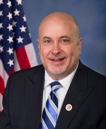|
Honoring
Our Heroes
By U.S. Rep. Mark Pocan
(D-WI) |
 |
In 1944, at the
height of World War II, Melvin Dwork(*) was
expelled from the Navy and given an “undesirable
discharge” for one simple reason: he was gay. He
spent the following decades fighting tirelessly
to remove this blot from his record.
“I
resented that word ‘undesirable,’” said Dwork.
“That word really stuck in my craw. To me it was
a terrible insult. It had to be righted. It’s
really worse than ‘dishonorable.’ I think it was
the worst word they could have used.”
Nearly 70 years
later, at the age of 89, Dwork finally saw his
record cleared. The Navy changed his discharge
from “undesirable” to “honorable” in
2011—marking what is believed to be the first
time the Pentagon has taken such a step on
behalf of a World War II veteran.
Tragically, Dwork’s
story is not unique. From World War II to the
repeal of “Don’t Ask Don’t Tell” in 2011,
approximately 114,000 service members were
discharged because of their sexual orientation.
Stories like Melvin’s are why I introduced
legislation with Rep. Charlie Rangel (D-NY) to
ensure that all of our nation’s courageous
veterans are treated with the dignity and
respect their service commands.
The Restore Honor
to Service Members Act, supported by more
than 100 bipartisan cosponsors, will guarantee
that gay and lesbian veterans who were
discharged from the military because of their
sexual orientation receive the honor and
recognition they deserve. It would instill into
law the repeal of “Don’t Ask Don’t Tell” and
support the Department of Defense’s efforts to
correct the unfairly tarnished military records
of our brave service members.
Tens of thousands of
gay veterans still live with the emotional scars
and the practical consequences of our country’s
former discriminatory policies. Beyond the
humiliation of being forced out of the military,
many of these veterans possess records that are
tarnished with a range of discharges and
designations because of their sexuality.
For these heroes,
the Restore Honor to Service Members Act
would be far more than just a symbolic
recognition of their service. The consequences
of a blemished military record can stay with
veterans throughout their lives. While the
characterization of discharge varied, many
service members received discharges that were
classified as “other than honorable” or
“dishonorable,” particularly prior to the
implementation of the “Don’t Ask Don’t Tell”
policy.
This classification
has tangible, destructive, and demeaning
consequences for gay veterans as they build
their lives at home. Service members with “less
than honorable” discharges often times have
difficulties securing civilian employment. They
can be prohibited from receiving veterans
benefits they’d otherwise be entitled to—such as
access to the GI Bill, veteran’s health care,
and a military burial. And in certain states, a
“dishonorable” discharge is treated as a felony
and can strip a veteran of his or her right to
vote.
Unfortunately, the
process for a veteran to have their record
reviewed is often times confusing and
inconsistent, discouraging many deserving
veterans from pursuing a rightful upgrade of
their record. Our legislation will create a
timely, consistent and transparent review
process so that gay veterans who served
honorably have their records justly upgraded to
honorable. Our bill will also allow veterans to
remove any indication of their sexual
orientation, so they are not automatically
“outed” to those accessing their record, such as
future employers.
Thousands upon
thousands of gay veterans have waited far too
long for legislation like this. As my friend and
co-author Rangel said, "Now is the time to
finish the job and ensure that all those who
served honorably are recognized for their
Honorable service regardless of their sexual
orientation."
The repeal of “Don’t
Ask Don’t Tell” ended a shameful chapter in our
nation’s history—a chapter this country was
undoubtedly ready to close. But there is still
work to be done to revoke the damage caused by
decades of discriminatory policies towards gay
and lesbian service members. While we cannot
rewrite history, we can right a great injustice
that has stained our nation’s conscience. The
Restore Honor to Service Members Act will do
just that: it will recognize and restore the
honor of those who have served our country with
nothing but honor.
-----------------------
U.S. Rep. Mark Pocan; Second District,
Wisconsin: Congressman Mark Pocan was
sworn in as the U.S. Representative for
Wisconsin’s second congressional district in
2013 following 14 years in the Wisconsin State
Assembly. A small business owner, union member
and lifelong advocate for progressive causes,
Rep. Pocan is committed to using his unique
experience from both the private and public
sector to fight for polices that promote job
growth and support the families of south central
Wisconsin. In Congress, he serves on both the
Budget Committee and the Committee on Oversight
and Government Reform, and has been appointed an
assistant minority whip. Rep. Pocan has been
married to his husband Phil since 2006.
* Editors note: Melvin Dwork's WWII discharge
upgrade story may be seen at
www.gaymilitarysignal.com/1112Dwork.html